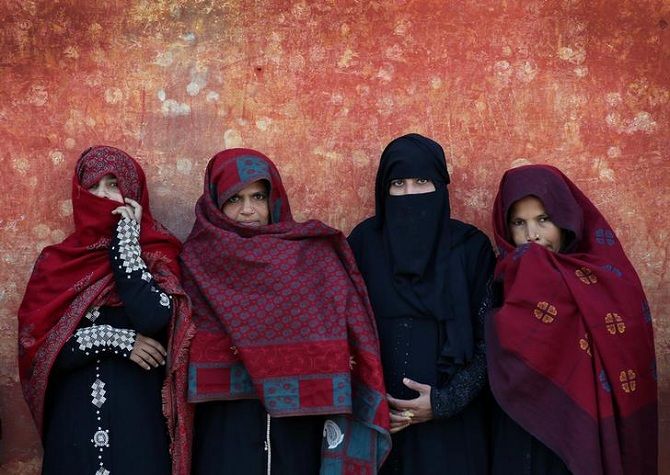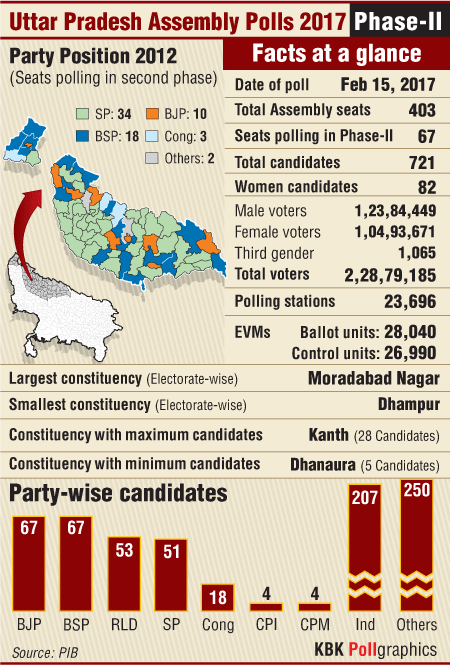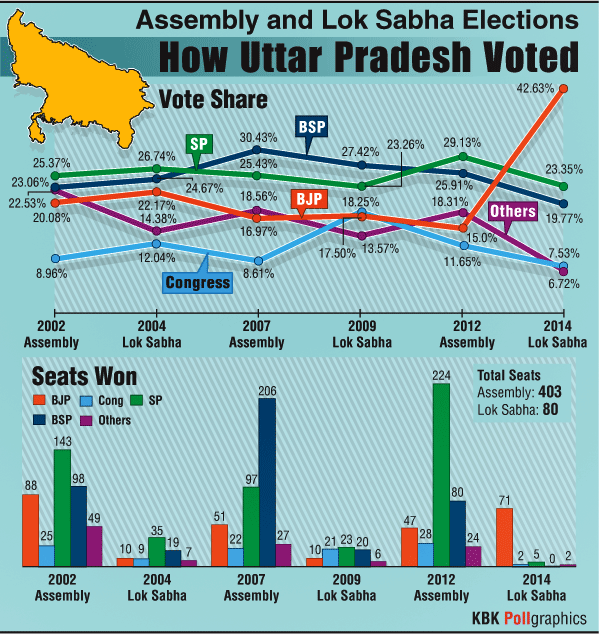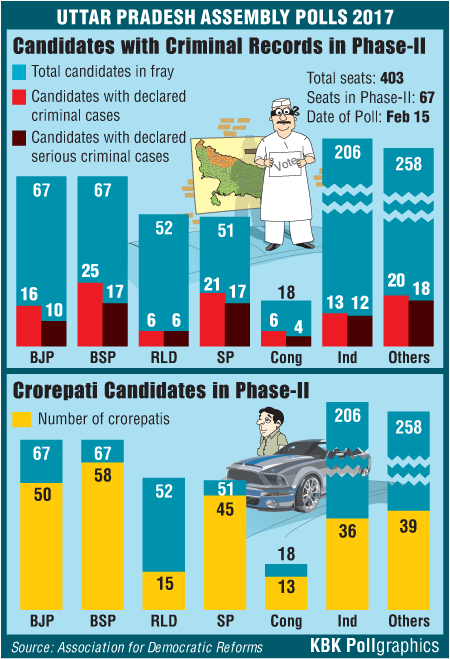Polling in Phase II of the Uttar Pradesh assembly elections consists of 67 constituencies spread across 11 districts.
Rediff.com's Aslam Hunani examines the key factors on the eve of the polls.

After a 64 per cent turnout in Phase I of the Uttar Pradesh elections on February 11, all eyes are now on the 67 constituencies that will vote on February 15, Phase II of the seven-phase elections in the state.
Polling in this phase is spread over 11 districts, and will see 721 candidates trying their luck.
In the 2012 assembly election, of the 67 constituencies, the Samajwadi Party won 34 seats.
The Mayawati-led Bahujan Samaj Party had grabbed 18, the Bharatiya Janata Party 10, the Congress won only three seats. Other parties had taken two seats.
The touch-and-go constituencies this time include Baheri in Bareilly, Behat in Saharanpur, Jalalabad and Katra in Shahjahanpur, Dhaurahra in Kheri, Dhampur in Bijnor, and Kanth and Bilari in Moradabad.


The main issues concerning this region of Uttar Pradesh is development, law and order and clearance of sugarcane dues.
This phase will be an important barometer of minority outreach for the SP-Congress alliance and the BSP's ability to manage the Dalit-Muslim combination.
The Muslim community forms more than 50 per cent of the population in Rampur and Moradabad, more than 40 per cent in Bijnor and Amroha, and more than 30 per cent in the remaining seven of the 11 districts going to the polls.
- Inside the Samajwadi Party war room
- 'Meri toh Mayawati hai, kasam se'
- 'Bas Modi hi hai BJP mein, aur kuch nahi hai'

The most well-known contestants in the second phase include SP Minister Azam Khan from Rampur, his son Abdullah Azam from Suar, Bharatiya Janata Party legislative party leader Suresh Kumar Khanna from Shahjahapur City, and state Minister Mehboob Ali from Amroha.
According to the Association for Democratic Reforms, the BJP has fielded 16 (24%) candidates with a criminal background, the BSP 25 (37%), the Rashtriya Lok Dal 6 (12%), the SP 21 (41%), the Congress 6 (33%).
Thirteen (6%) Independent candidates have declared criminal cases against themselves in their affidavits.
Of the more than 700 candidates in the fray, 256 candidates or 36% are crorepatis.
The BSP's Nawab Kazim Ali Khan (Suar in Rampur district) has declared assets worth ₹97 crores (Rs 970 million).
At the other end of the spectrum, 3 Independent candidates have declared zero assets in their self-sworn affidavits.
On the education front, 277 (39%) candidates have declared their educational qualification to be between the 5th and 12th standards, while 310 (43%) candidates are graduates or have higher education.
Only 93 candidates have declared themselves to be just literates and 11 candidates have declared that they are illiterate.
An estimated 22.8 million voters, including more than 10.4 million women, will decide the fate of these candidates.
Phase 3 of polling will be held across 69 constituencies, in 12 districts, on February 19.
Scroll down for more exclusive poll stories from Uttar Pradesh.











 © 2025
© 2025